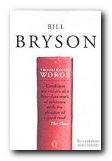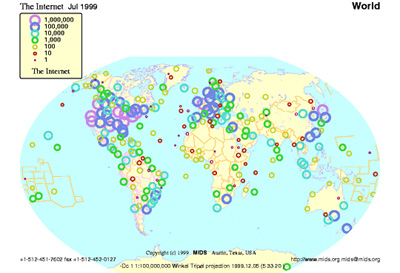A-Z of problematic English words – with explanations
Before he became a best-selling travel writer, Bill Bryson worked as a sub-editor on The Times. This is a successful guide to problems of English language he wrote for journalists at the time, now updated and in its third edition. It’s arranged on an A to Z basis – running from abbreviations and acronyms, through mean and median (know the difference?) to wondrous, years’ time, and zoom. He explains words we commonly misunderstand, words we confuse, tricky issues such as foreign terms, and points of grammar such as split infinitives. And he does this with all the verve and wit which have made him such a well-loved writer.
 He’s particularly good at showing the subtle distinctions between similar words (such as amid and amongst) and words which are easily confused (such as blatant and flagrant).
He’s particularly good at showing the subtle distinctions between similar words (such as amid and amongst) and words which are easily confused (such as blatant and flagrant).
I couldn’t agree with him on data being a plural noun – but he does invite readers to challenge his judgements. You have to be on your intellectual toes. Sometimes his explanations are rather cryptic
Comprise means to contain. The whole comprises the parts and not vice versa.
But the correlative of this is that he packs a lot in. And occasionally this terseness works entirely to his advantage:
When something is not working properly, it is defective; when it is missing a necessary part, it is deficient.
The reason there are all these problems with English is that we have so many different terms for the same thing. Bill Bryson explains all this in his other excellent book Mother Tongue, to which this is a follow-up. He also throws in all sorts of extras – such as how to pronounce the name of the fish coelacanth (see-luh-kanth).
You will almost certainly learn about the meaning of words you never thought about before. Did you know the difference between ‘expectorate’ and ‘spit’ for instance?
There’s a very good bibliography and a glossary. Anybody interested in sharpening their writing skills will profit from reading this book. It’s a reference guide, a tutorial, and a very entertaining insight into language niceties for the general reader.
© Roy Johnson 2009
Bill Bryson, Troublesome Words, London: Penguin Books, 3rd edn, 2009, pp.256, ISBN: 0141040394

